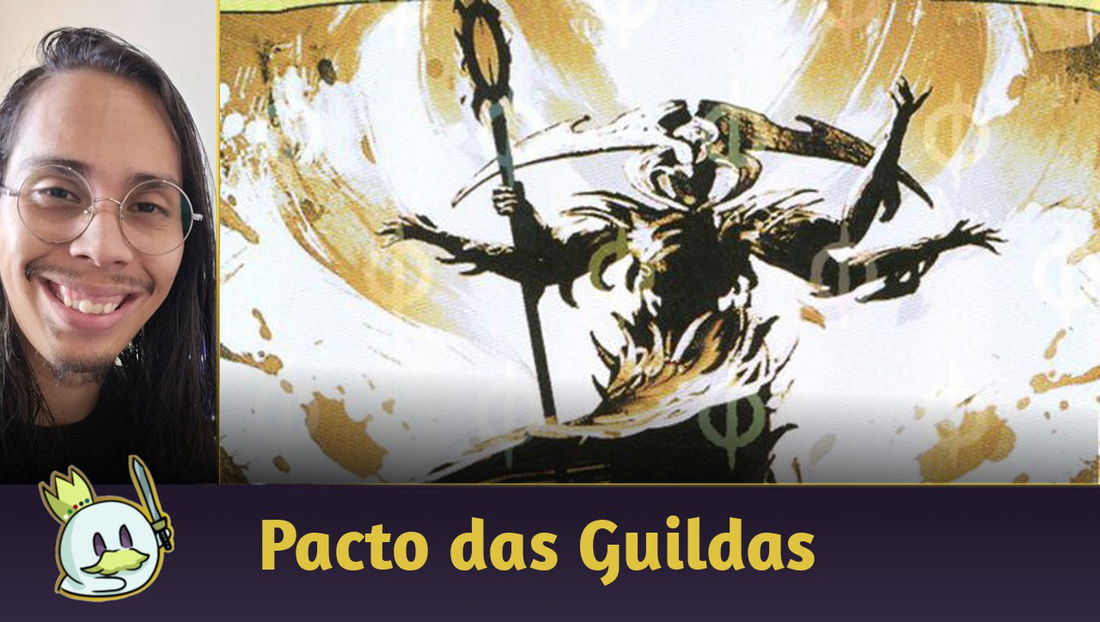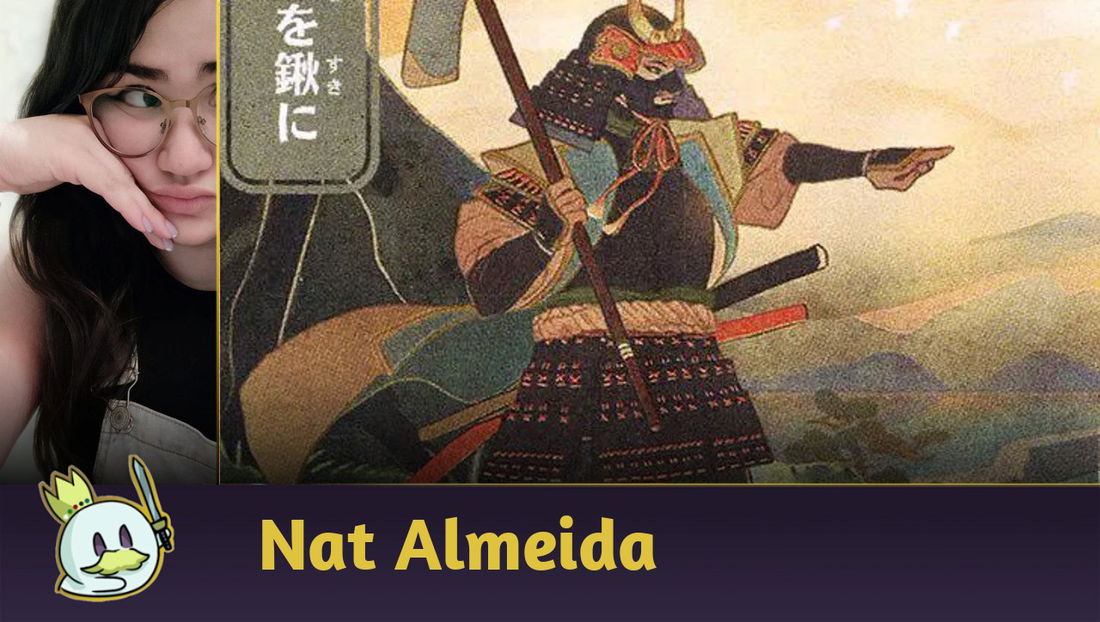Wizards of the Coast released its new Banned and Restricted update for competitive Magic: The Gathering formats on Monday afternoon (26), with specific changes for the game's eternal and non-rotating formats.
The company also announced the change in update and ban dates after the controversy surrounding this announcement, which occurred in the middle of the Modern format's Regional Championship Qualifiers (RCQs) season. The company intends to align future bans with RC and RCQ seasons around the world to avoid intervening in the middle of them, using data from these events and the Pro Tour to analyze the health of the formats and how they absorb each new release.
This change will also mean fewer banned and restricted announcements in the year window, with the next update scheduled for December 16.
Below is a summary of the explanation for each format ban written by Dan Musser, head of the Magic: The Gathering Competitive Play Team
Pioneer

In the Pioneer section, Dan explains that Rakdos Vampires has seen a gradual rise since Seth Manfield's victory at Pro Tour Murders at Karlov Manor on February 23. The combination of Sorin, Imperious Bloodlord to play Vein Ripper on turn three is a problematic play that many other decks can't interact with, since traditional removal also requires a creature to sacrifice and pay the Ward - a challenge against a strategy that removes these resources with interactions like Thoughtseize and Fatal Push.
With over 30% share in the Metagame and RCQs, it was clear that Rakdos Vampires were a problem for Pioneer, and while Sorin, Imperious Bloodlord went years without being a threat to a format, it was also clear that it only takes a curve-topping Vampire for it to become one, and given the possibility of other powerful Vampires being released in the future, the Planeswalker is banned.

In the June 24 announcement, Wizards had mentioned that they were keeping an eye on the results of Amalia Benavides Aguirre's Wildgrowth Walker combo, where any interaction with life gain and/or the Explore ability leads to a loop that, ideally, ends with Amalia having 20 power and destroying the other creatures. In practice, there were several situations where Wildgrowth Walker gained indestructible and started an infinite loop that forced games to a draw - this was not the way Amalia was intended by the design team, nor was it something the playtest team realized before the release of Lost Caverns of Ixalan.
Amalia's deck is also very resilient and has several means of recursion and interaction with the opponent's hate, in addition to a high level of consistency provided by Chord of Calling, Return to the Ranks and Collected Company, and this combination of high power and consistency leads to the banning of Amalia Benavides Aguirre in Pioneer.

Other powerful cards that are very present in the Pioneer Metagame were considered, especially Treasure Cruise and Fable of the Mirror-Breaker. However, the Competitive Play team chose to make the necessary and important changes to the formats without going too far and observe their development from this point on for possible changes on December 16th.
Modern

Michael Majors, lead designer on Modern Horizons 3, was responsible for explaining Nadu's ban. Majors explains how Nadu went from a creature that allowed you to cast permanents as if they had Flash and punished your opponent's spells and abilities with its trigger to its current form due to a last-minute change made because the design and playtest team expressed concern about Nadu's Flash-granting ability in Commander, and consequently, the text of the card was changed to make it attractive to build around in Commander.
Because it was near the end of the development cycle, neither Majors nor the rest of the team realized how Nadu's interaction with zero mana costs was broken. The playtest team did not test Nadu in its most recent form, and the card was released as such.
After Pro Tour Modern Horizons 3, it became apparent that Nadu, Winged Wisdom had become a problem for the Modern format as players optimized their lists, removing Thassa's Oracle and starting loops with Springheart Nantuko and Endurance, creating new ways to respond to the Metagame and, consequently, leading to a situation where it polarized the RCQ season between those who were sure the card would be banned and would not play with it and those who would use their deck to have the best chance of winning their spot - for these reasons, Nadu, Winged Wisdom is banned.

According to Dan Musser, Grief has been considered one of the least fun elements of competitive Magic in recent times. The interaction of its Evoke ability with reanimation effects like Not Dead After All or Ephemerate creates situations where players already start the game without their two most important cards from their starting hand, and when added to mulligans, the MH2 elemental creates more unfun games than desirable.
While Grief is no longer as widely played as it was before the release of Modern Horizons 3, there are still several decks that focus on using it with effects to abuse its ETB, and in the interest of making the format more fun, Grief is banned from Modern.
Legacy

For Legacy, Dan explains that despite the format's high-power level, with some of the most powerful cards in the game's history, you need to cast your spells for those cards to work. As in Modern, Grief doesn't allow your opponent to play the game.
In Legacy, however, its problem has been exacerbated because the spells used to bring it back after Evoke aren't conditional. Cards like Reanimate and Animate Dead and the protection offered by Daze and Force of Will made Grief the perfect answer for Reanimator decks to deal with hate, and since the format couldn't adapt to this combination, Grief is banned from Legacy.
Vintage

Several decks in Vintage run Urza's Saga without major deckbuilding concessions. From Tinker lists to Mishra's Workshop to the Lurrus of the Dream-Den decks at the top of the Metagame, the MH2 land has proven to be too efficient, and a restriction serves to diminish the consistency that the card offers. With its ban, Wizards plans to have fewer games decided by Black Lotus plays on turn three or four and fewer Constructs on the board.

Vexing Bauble is a hate piece released in Modern Horizons 3 to deal with specific cards in the format's Metagame. Spells like Grief, Living End, and Force of Negation are some of the primary targets of the artifact, but Vintage is a format played to use the most powerful cards in Magic*, which includes 
Unlike Chalice of the Void, Vexing Bauble doesn't pose any problems for playing with multiple copies of it because players can sacrifice it to draw a card, play their spells, and cast another copy. To maintain the nature and appeal of Vintage, Vexing Bauble is restricted.
Source: DailyMTG.












— Kommentare 0
, Reaktionen 1
Sei der erste der kommentiert